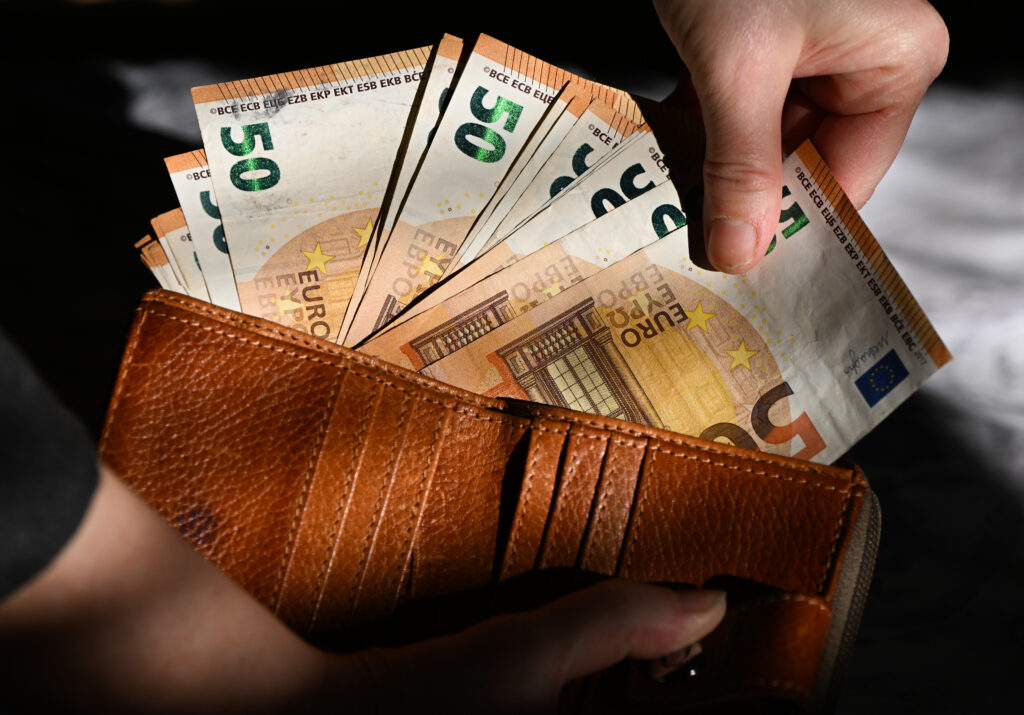BRUSSELS — The EU will shortly approve Bulgaria’s bid to adopt the euro as early as Jan. 1, 2026, making it the 21st member of the bloc’s currency union.
After years of waiting, several officials told POLITICO that the European Commission and the European Central Bank (ECB) are expected to finally give their blessing in a report that will be published next Wednesday.
Bulgaria’s euro accession would help the country boost trade with the rest of the bloc, cut transaction costs and strengthen its clout in Brussels.
“Joining the euro will only strengthen [sovereignty] for Bulgaria — we will participate in the decision making process of the ECB,” Atanas Pekanov, a Bulgarian economist and the country’s former deputy prime minister, told POLITICO.
For decades, the lev — the local currency — was pegged to the euro but the country had no say over the ECB’s monetary policy decisions as it was not a member. If Bulgaria joins the single currency as planned in 2026, Bulgaria’s central banker will take a formal seat in the ECB’s Governing Council. However, as it will be only the 13th largest member of the union, accounting for less than 1 percent of its gross domestic product, its influence on the Council will be limited.
Concerns persist
Critics warn, however, that the move is not without risk. Adopting the single currency could, for example, trigger at least a one-off rise in prices — particularly hurting poorer households in rural areas — as businesses take advantage of the switch.
In the medium term, low domestic prices also tend to adjust to higher European norms thanks to increased trade within the bloc. This has been the pattern for recent adoptees such as Slovakia, Estonia and Lithuania, all of whom initially experienced rises in inflation.
Fears are most acute inflation would hit basic goods like vegetables, especially in rural areas where consumers have fewer choices.
“[Rural voters are skeptical] not because they’re euroskeptic, but because of fears over an increase in the cost of living,” said Pekanov, who’s a major supporter of euro accession.
Tuning into such concerns, Bulgarian President Rumen Radev sent shockwaves across the nation after announcing earlier this month that he wanted to hold a national referendum to delay the country’s euro accession.
This, however, is unlikely to be allowed by the country’s constitutional court, which has already ruled on previous occasions that such a vote would be unconstitutional.
Radev’s announcement is also unpopular in Parliament, where a majority of Bulgarian parties support adopting the euro.
Speaking on Tuesday, Bulgarian prime minister, Rossen Jeliazkov, said “It makes no sense, at a time when the nation should be confident that the introduction of the euro will only benefit the competitiveness of our economy, for us to introduce a debate that actually manipulates people and instills fear in them.”

Sofia is currently on course to meet the eurozone’s entry criteria after bringing down inflation to the target rate — one of the biggest hurdles in the process so far.
In order to join the euro, Bulgaria’s average inflation rate from Apr. 2024 to Apr. 2025 must be within 1.5 percentage points of the rate of the three EU countries with the lowest inflation.
In 2024 these were Ireland (1 percent), Italy (1.4 percent) and Luxembourg (1.6 percent).
Inflation in Bulgaria dropped from 4.7 percent in 2023 to 2.6 percent in 2024. But it’s expected to rise to 3.6 percent this year — well above the eurozone’s 2.1 percent rate for 2025 — due largely to an increase in VAT on many items at the start of the year.
Kathryn Carlson contributed reporting.
This story has been updated.


